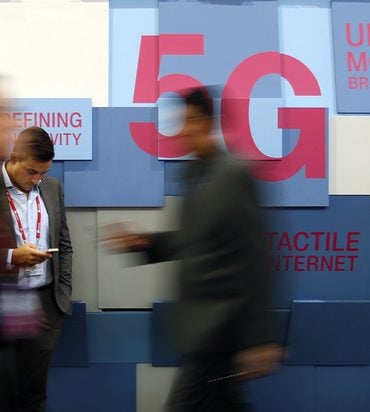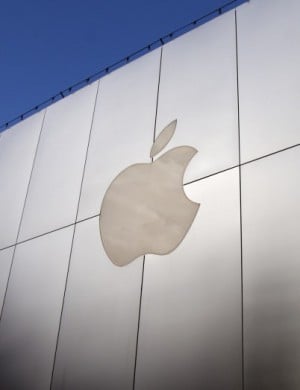Find out the week’s top mobile stories from around the world.
This week.. O2 ‘to seek millions’ in damages over data outage, Ad-fraud shift from desktop to mobile, IBM may work with telcos to offer blockchain solutions, US could follow China in banning iPhone and much more.

O2 ‘to seek millions’ in damages over data outage
BBC
Mobile operator O2 is understood to be seeking millions in damages from supplier Ericsson after last week’s day-long data network collapse.
The total bill could be up to £100m, according to The Telegraph.
O2 smartphone users were unable to use their mobile phone data last Thursday. Ericsson blamed expired software certification for the problem.
Both firms have apologised for the issue and O2 has already set out how it plans to compensate customers.
Read more…
Ad-fraud shift from desktop to mobile sparks partnership
The Drum
As consumers shift more and more of their online time to mobile, ad fraud is following suit. DoubleVerify’s Fraud Lab has noted an 800% jump in in-app mobile ad fraud over the past year. In response, the marketing analytics software provider has partnered with InMobi, a mobile engagement platform for marketers.
As part of the partnership, “DoubleVerify will provide always-on fraud filtering and measurement for mobile in-app advertising campaigns across the InMobi Exchange globally,” DoubleVerify chief operations officer Matt McLaughlin said in an announcement.
Third-party verification has helped to reduced digital ad fraud on desktops to low single digits, according to DoubleVerify. At the same time, mobile apps have grown to command more than 50% of a consumer’s time online. In response, advertiser’s demand for quality mobile inventory has ballooned.
Read more…
IBM may work with telcos to offer blockchain solutions
Economic Times
International Business Machines (IBM) is looking to work with Indian telecom firms to offer blockchain solutions that can be used in mobile number portability (MNP) and ‘Do Not Call’ (DNC) registries.
“We have completed proof of concepts and pilots with all the major telecom providers and with Trai in this space,” said Sriram Raghavan, vicepresident of IBM Research. “We anticipate that, going into the New Year, we’ll start to see blockchain solutions getting rolled out.” He did not name the telecom companies.
The Telecom Regulatory Authority of India (Trai) and telecom providers have been working with tech firms such as IBM to know how blockchain could address issues of coordination among multiple parties with respect to Do Not Call registries and number portability. Everything from customer consent for the DNC service to whether the consent is respected is recorded on blockchain, Raghavan said.
Read more…
China moves ahead with 5G mobile development plans despite Huawei’s legal woes
South China Morning Post
China is moving rapidly to develop 5G services nationwide after allocating radio frequency spectrum for the next-generation mobile system to the country’s three telecommunications carriers, despite concerns over the legal battle being waged by network equipment giant Huawei Technologies in Canada.
The central government awarded China Mobile, China Unicom and China Telecom with 5G spectrum licences on Friday, enabling them to conduct final trials for the new mobile system before its wide commercial roll-out from 2020.
“This sends a clear signal to the industry that we aim to promote the maturity and development of China’s 5G industry,” the Ministry of Industry and Information Technology (MIIT) said in a statement posted on its website on Monday.
Read more…
US could follow China in banning iPhone
Mobile World Live
Apple faced the prospect of a second ban on sales of its iPhone, as the US International Trade Commission (ITC) moved to reconsider an earlier decision not to block shipments despite evidence of patent infringement, Reuters reported.
In October, an ITC judge found Apple had infringed on one Qualcomm patent, but cited public interest factors in advising against an exclusion order.
However, the agency told Reuters it was set to review both elements of the decision.
The ITC will weigh how long it would take Apple to come up with a new design which doesn’t infringe on Qualcomm’s technology; national security implications associated with a ban; and the feasibility of implementing an import ban, the news outlet noted.
Read more…
MIT Finds Privacy Risks in Anonymized Mobile Data
Meritalk
Even anonymity doesn’t guarantee privacy. Not even in a crowd of millions.
That’s the finding of a new study by Massachusetts Institute of Technology (MIT) researchers who found that anonymized mobility data can still result in privacy risks when that data is combined with data from other sources. Data–lots of it–is widely seen as the key to better planning for cities, transportation lines, and any kind of mobility services. But collecting all that data has an unintended privacy risk, even when taking pains to protect people’s identities.
In the broader cybersecurity picture, the findings reveal another potential weakness that could emerge from the proliferation of mobile applications.
The research team performed the first-ever study of what’s called user “matchability,” using two massive, anonymized datasets collected in Singapore whose data was low-density, meaning there were few records generated per day. One set was from a mobile network operator, comprised of timestamps and geographic coordinates in more than 485 million records from over two million users. The other dataset came from a transportation system and included more than 70 million records with timestamps for individuals moving through the city.
Read more…
Mobile money holds key to financial inclusion in Africa, experts say
UNCTAD
Sending and receiving money by mobile phone – pioneered since 2007 by Kenya’s Safaricom with its M-Pesa platform – can include more people into the economy in Africa and be the base of more sophisticated forms of e-commerce, speakers said on 13 December at UNCTAD’s Africa eCommerce Week in Nairobi, Kenya.
More than 10% of adults in sub-Saharan Africa have a mobile money account — the highest in the world — and it is spreading to West Africa and beyond.
The United Nations says that giving “unbanked” Africans access to banking services – especially women and people living in remote rural areas — boosts economic growth.
And while mobile money initially enabled people to make financial transactions on their phones, eliminating travel costs, it now extends to mobile credit, insurance, cross-border remittances, bill payments, airtime top-ups, and savings.
Read more…
Your Apps Know Where You Were Last Night, and They’re Not Keeping It Secret
New York Times
The millions of dots on the map trace highways, side streets and bike trails — each one following the path of an anonymous cellphone user.
One path tracks someone from a home outside Newark to a nearby Planned Parenthood, remaining there for more than an hour. Another represents a person who travels with the mayor of New York during the day and returns to Long Island at night.
Yet another leaves a house in upstate New York at 7 a.m. and travels to a middle school 14 miles away, staying until late afternoon each school day. Only one person makes that trip: Lisa Magrin, a 46-year-old math teacher. Her smartphone goes with her.
Read more…
The continuing rise of mobile edge computing, 5G and IoT security, hot topics for 2019
Information Age
In the coming year, companies will look to better come to terms with the data efficiency and security issues generated by widespread mobile working and the arrival of IoT within the enterprise. As a result, mobile edge computing is showing signs of exerting real influence across a number of sectors.
Such solutions not only reduce strain on the cloud by processing data on the edge, but also play an integral role in perimeter security by ensuring data communication is locally translated to a communication protocol before being sent to the organisation’s network core.
With organisations looking to integrate this edge-focused element to their mobile infrastructure, BI Intelligence estimates that 5.6 billion business-owned devices will use edge computing for data collection and processing by 2020.
Read more…
New York City and New Jersey lawmakers target cashless businesses, saying they discriminate against the poor
CNBC
Lawmakers in New York City and New Jersey are working to pass bills that would require retailers to accept cash, alleging that the growing cashless trend discriminates against low-income customers.
Low-income, minority and less-educated households are more likely to have no bank accounts or rely on financial products that come from outside the banking system. People who defend cashless commerce cite greater convenience for customers and lower risks for businesses.
Although mobile payments and digital banking products are on the rise, many Americans still do not use a credit or debit card. Roughly 7 percent of U.S. households, or 8.4 million, are unbanked, meaning that no one in the household possesses a checking or savings account, according to a 2017 survey by the Federal Deposit Insurance Corporation. Another 19 percent are underbanked, indicating that they have a bank account but still rely on financial products such as payday loans.














